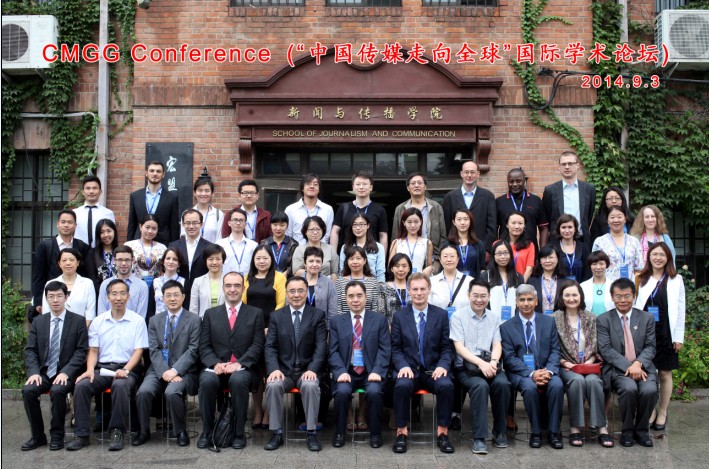The International Conference on China’s Media Go Global was held at Tsinghua University from Sept.2 to Sept.3. This conference was organized by School of Journalism and Communication, Tsinghua Israel Epstein Center for Global Media and Communication, China Media Centre, University of Westminster and Chinese Association of Global Communication. Over 60 scholars and experts coming from different continents of the world gathered to spark off ideas on the China’s media going global.
As the initiator and chief organizer of the conference, Professor SHI Anbin, Associate Dean of Tsinghua School of Journalism and Communication, hosted the opening ceremony. Professor LIU Binjie, Dean of Tsinghua School of Journalism and Communication, stressed the application of Internet-thinking in the process of media convergence on the opening ceremony. Vice president of Tsinghua University XIE Weihe delivered a bi-lingual speech. He indicated the underlying significance of this conference, which is the effective communication between media in China and overseas. His English speech sparked long applause among the meeting-attendee.
Mr. Cairola Andrea from UNESCO expressed the willingness to see efficient information flow throughout the world. As one of the co-chairman of the conference, Professor Hugo de Burg also remarked on the opening ceremony.
After the opening ceremony, YAN Chengsheng, Deputy Director-General of the International Cooperation Department of the State Administration of Press, Publication, Radio, Film and Television of the People’s Republic of China and QU Yingpu, Deputy Editor-in-chief, China Daily, introduced the status quo of television and newspaper in China. Professor Daya Thussu from University of Westminster briefed on the future prospect of BRICS building new orders of information.
The conference consists of nine panels. scholars launched debate about “Soft Power in Foreign Soil”, “National TV Station’s Efforts”, “Reconstructing Chinese Narrative: Based on Global Communication and Public Diplomacy”, “Comparing Journalism Practices”, “New Media, New Scenario” and so on. These debating topics spanned from intercultural communication, public diplomacy, new media to TV and film studies. During the discussions, young scholars also displayed their newly-done researches by delivering themed speeches. (By Zhang Zhuo)


